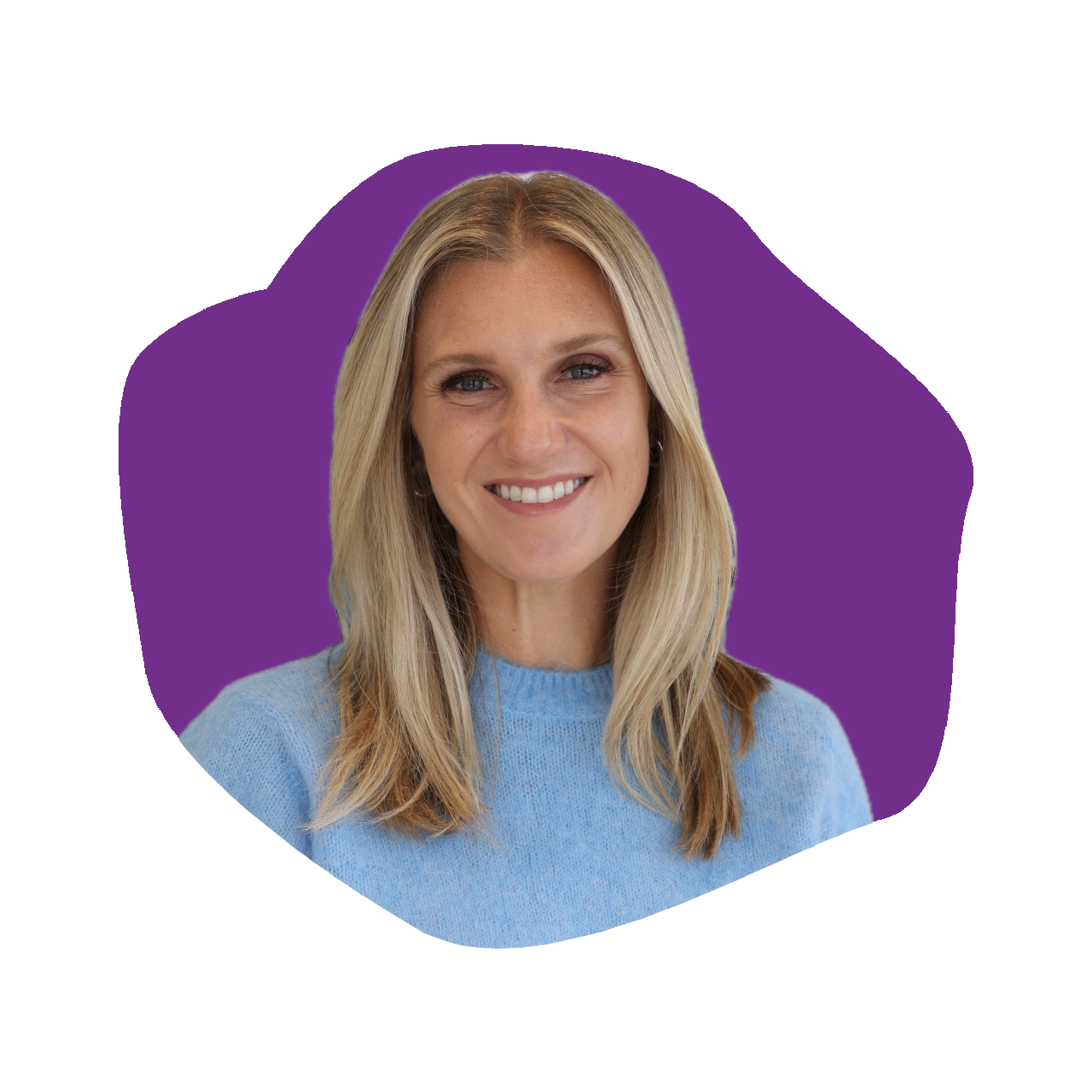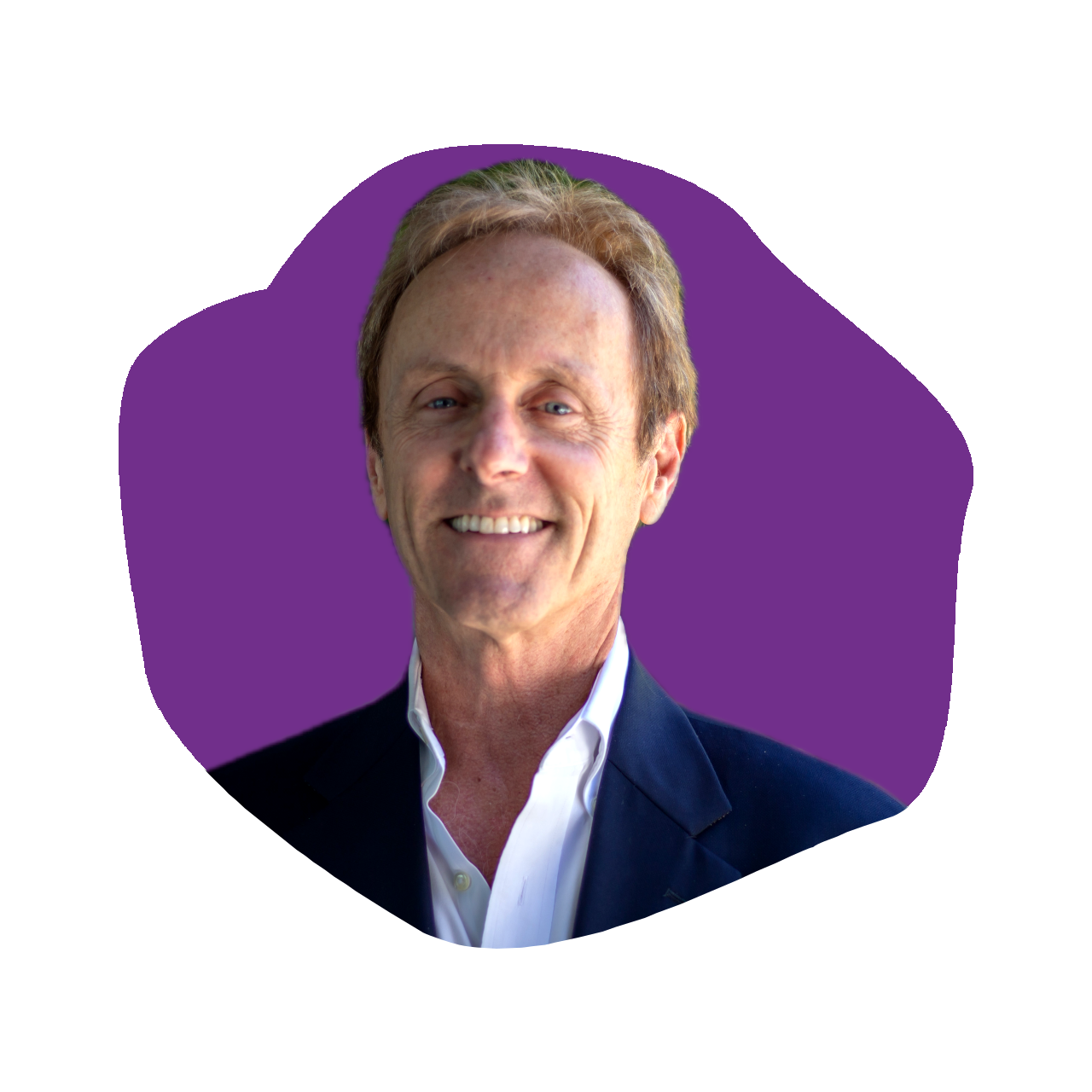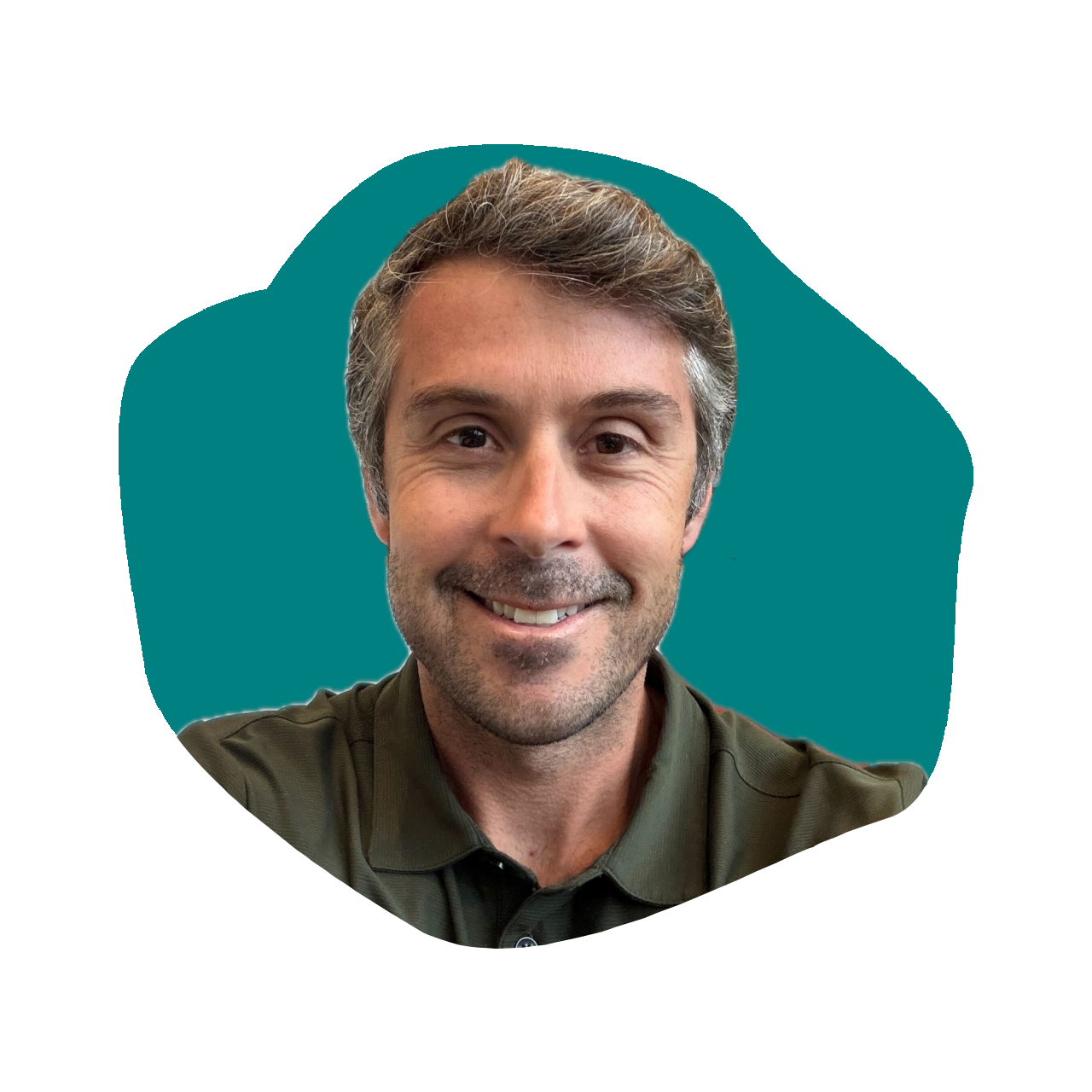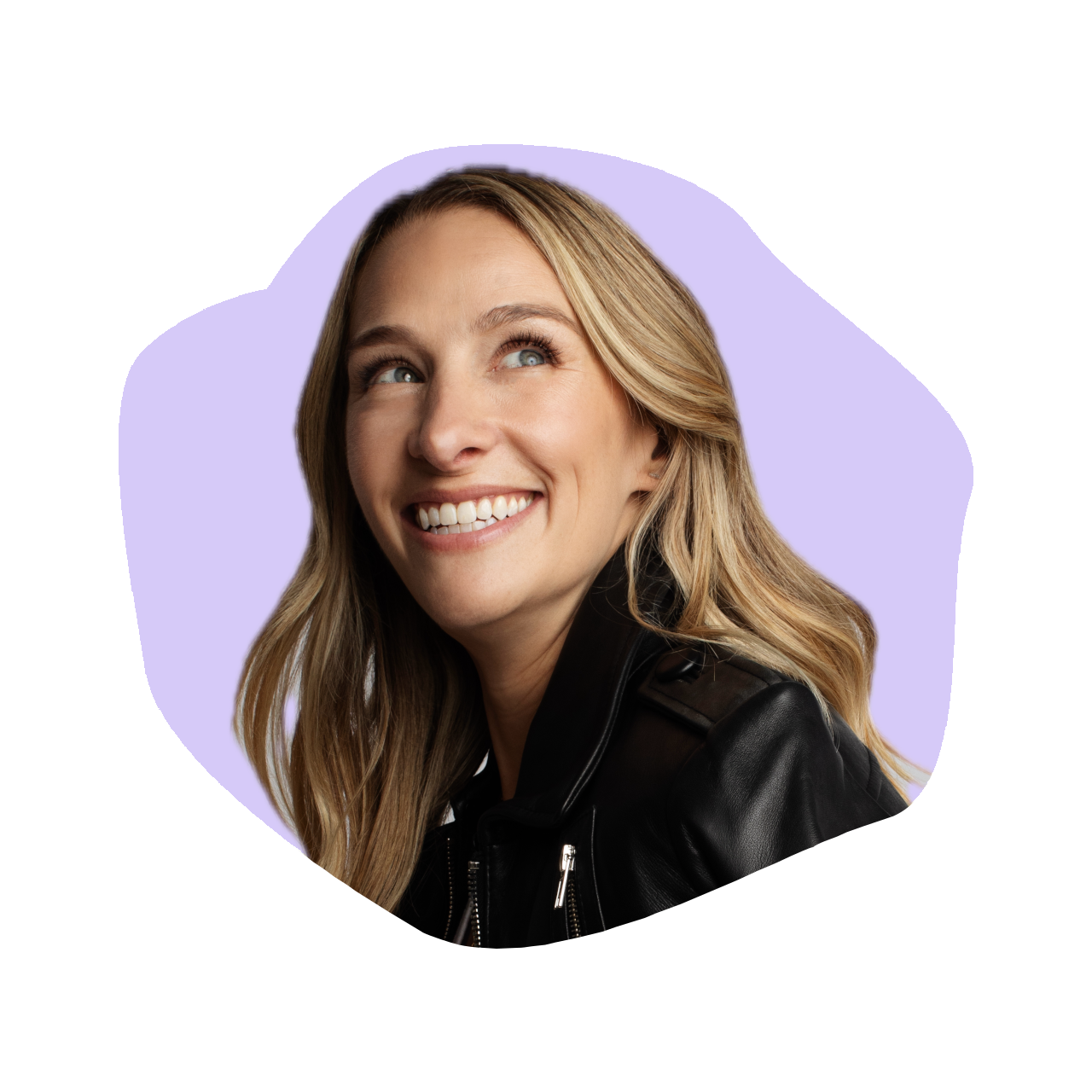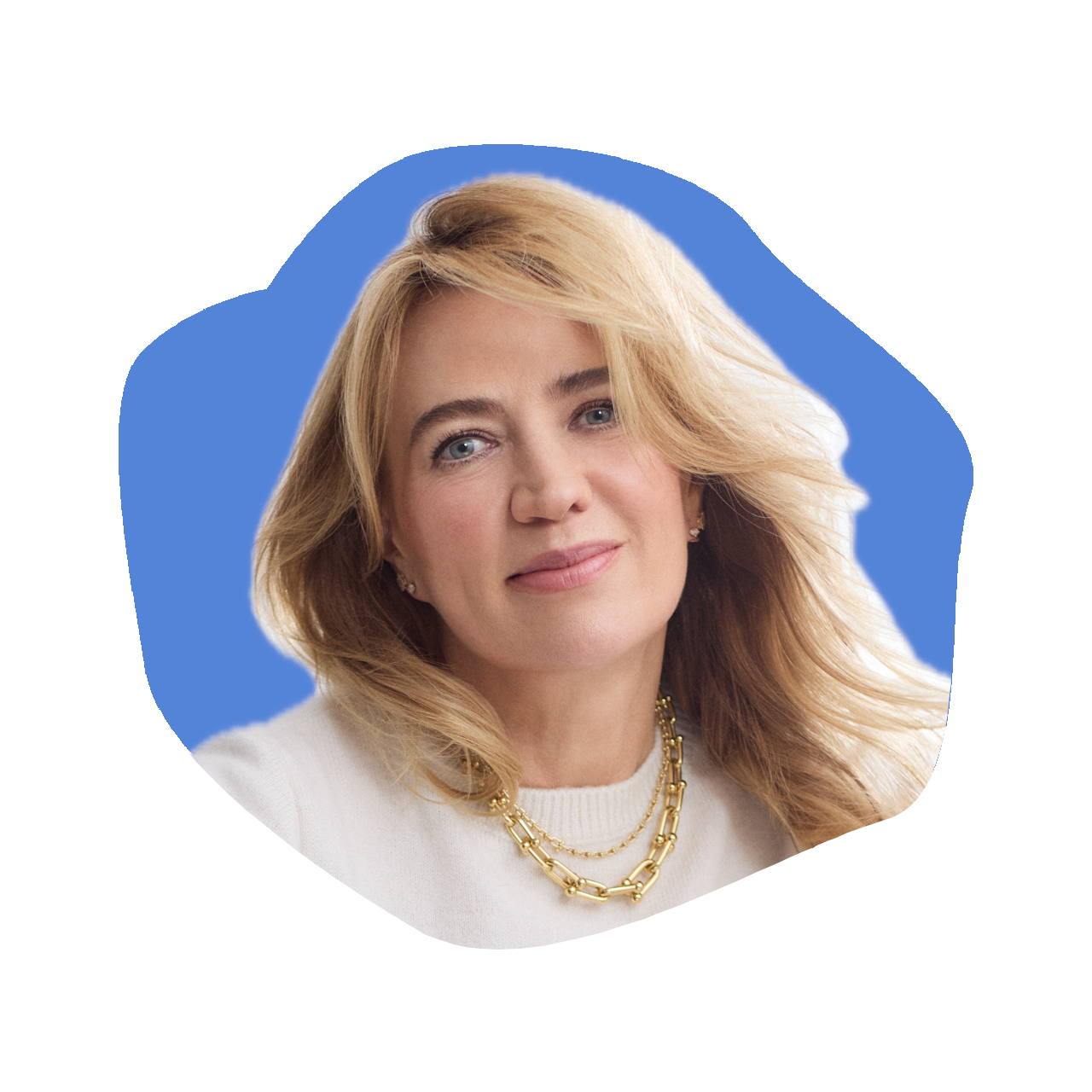Basma Hameed: Founder & CEO of BASMA Beauty
Episode 527
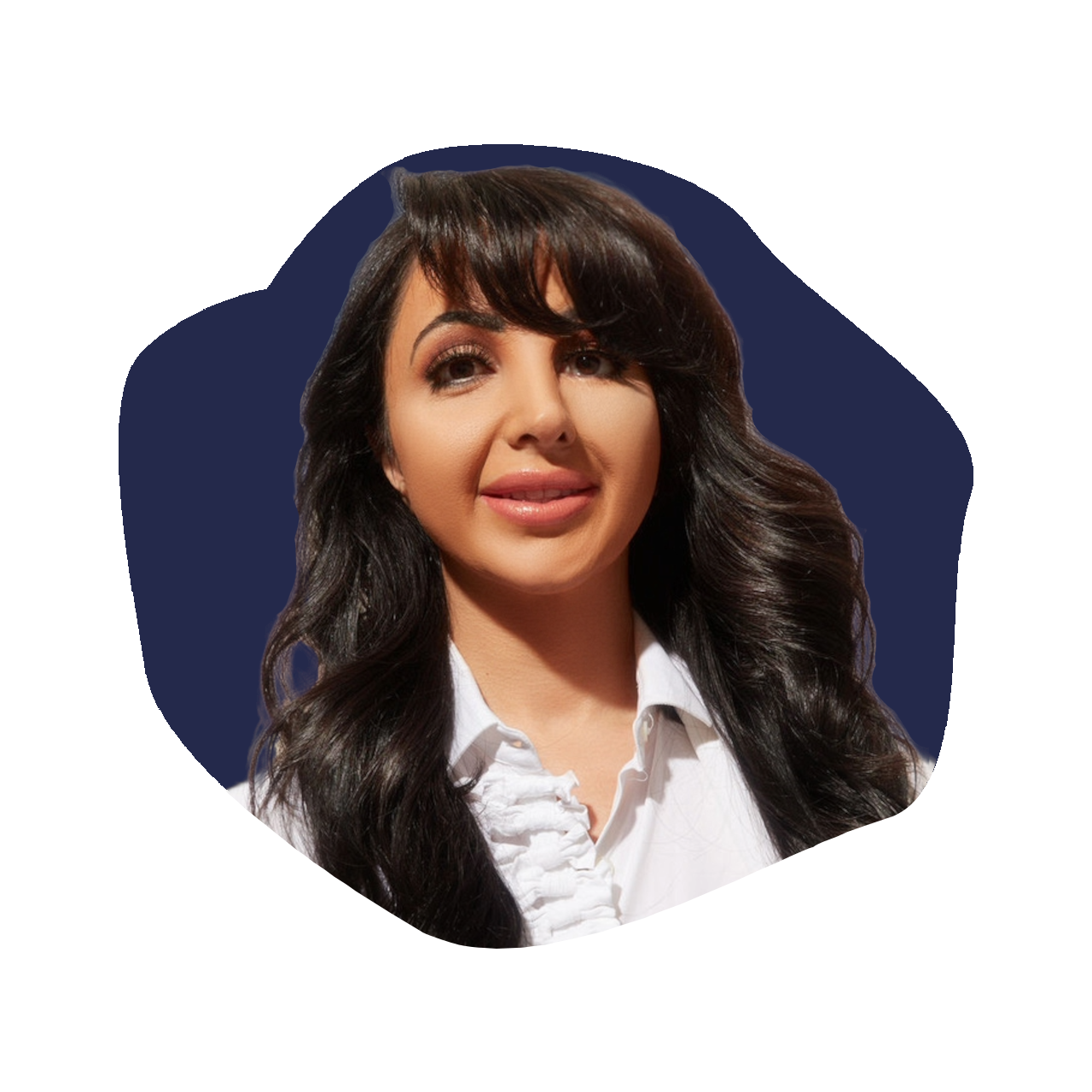
Basma Hameed, Founder and CEO of BASMA Beauty, shares her inspiring journey of creating a beauty brand that focuses on inclusivity and personalization of skincare and makeup. Basma's passion for makeup started at a young age when she discovered its ability to boost her confidence and cover her facial scars. She went on to study color correction and medical aesthetics, eventually developing a technique to customize skin tone colors and implant them into scar tissue. This led her to open clinics in Toronto and Beverly Hills, where she has helped numerous clients with various skin conditions. After years of perfecting her formula, Basma launched Basma Beauty, starting with a range of foundation sticks and later expanding to blushes. Plus she shares her advice to entrepreneurs looking to start their own company and tells us what it takes to scale a brand in the beauty industry? You are going to love this episode and I can’t wait for you to hear it. Now on the #TheKaraGoldinShow.
Resources from
this episode:
Enjoying this episode of #TheKaraGoldinShow? Let Kara know by clicking on the links below and sending her a quick shout-out on social!
Follow Kara on LinkedIn – Instagram – X – Facebook – TikTok – YouTube – Threads
Have a question for Kara about one of our episodes? Reach out to Kara directly at [email protected]
To learn more about Basma Hameed and BASMA Beauty:
https://www.instagram.com/basmabeautyofficial/
https://www.tiktok.com/@basmabeautyofficial
https://www.linkedin.com/in/basmahameed
https://www.instagram.com/justbasmahameed/
https://www.basmabeauty.com/
Transcript
Kara Goldin 0:00
I am unwilling to give up that I will start over from scratch as many times as it takes to get where I want to be I want to be you just want to make sure you will get knocked down but just make sure you don’t get knocked down knocked out. So your only choice should be go focus on what you can control control control. Hi, everyone and welcome to the Kara Goldin show. Join me each week for inspiring conversations with some of the world’s greatest leaders. We’ll talk with founders, entrepreneurs, CEOs, and really some of the most interesting people of our time. Can’t wait to get started. Let’s go Let’s go. Hi, everyone. Welcome back to the Kara Goldin show where we dive into the lives and minds of some of the most inspirational and forward thinking entrepreneurs of our time. Today we have an incredible guest to chat with. Basma Hameed, who is the founder and CEO of an incredible beauty brand. That is called BASMA Beauty and BASMA Beauty is a brand that’s shaking it up in the beauty industry with its very innovative approach. It’s not just another cosmetic line, it’s a pioneering brand that crafts formulas with a deep understanding of the diversity and skin tones, the unique journeys our skin undergoes and the specific needs of different skin types. And vastness vision goes way beyond superficial beauty standards focusing on include inclusivity and the personalization of skincare and makeup and her backstory of why she founded it is so inspiring and so incredible. Her work and developing these products to really comes from a place of solving a problem, not just for yourself, but for others. So very, very inspiring. And so without further ado, it’s so nice to meet you. Basma, welcome.
Basma Hameed 2:04
Thank you so much for having me. I love the intro. Thank you. I really appreciate it.
Kara Goldin 2:10
Absolutely. Well, what you’ve done and definitely best when beauty is shaking it up. I really mean that. So very excited to have you here to share a little bit more about the brand and overall your journey. So can we start at before you started basswood beauty? What were you doing? And kind of how did this idea all come about?
Basma Hameed 2:33
So I’ll take you back a little bit. So when I was two years old, I actually I was in a kitchen accident. And I ended up having hot oil spilling down half of my face. And literally, as a child as a kid, like my whole life, I felt like I was never included. Right. So anywhere I went, it was always because it was on my face. It was the first thing that anybody you know, saw, right, everybody would be able to see it. And they would say something. It was very hard growing up with it, because of the bullying and all of that that comes with it. So I found that it was during that difficult time. I was super young. But around like I believe like six years old. I came and I think I did like I discovered makeup around that time. Okay, I just came across Foundation. And but just by chance playing with it. I didn’t understand that it was started giving me like a little bit of that confidence. Right? And being so young, I didn’t I just didn’t know those feelings. But I felt like like there’s something there. Right. So I kept playing with makeup. I started actually throughout the years. At that age, I started mixing my own colors and customizing and I didn’t really know I was actually learning how to color correct. So my burn was extremely red. So during that time when I was mixing colors, I didn’t realize I was actually that’s what I was doing is color correcting. So through that time, I just felt so deeply in love it just I felt like I was finally free. You know so if I apply it I always say like it’s like, you know Superman with his cape. Every time when I had makeup on. I felt like no one could stop me. So understanding that and knowing like like what that did to me and understanding at a very young age from color correcting the difference between skin types and undertones and scar tissue because I have a mixture of everything right? So understanding it’s so young, I didn’t really know that it was preparing me for another chapter right in my life. And you know, and to be honest with you, like I grew up, I wasn’t like, you know, you I was shy, but at the same time, so as soon as I have the makeup, I’m good to go. That’s my confidence boost. So I saw myself like,
I’ll be a little bit more active. And then at the same time, like, Okay, here’s something that gives me confidence. But if I walk into makeup store, the first thing like, without even me saying anything, they’d be like, you go over here. So they would point me towards the more scar friendly makeup. And it would make me so much more insecure. And I’m like, This is not making any sense. The one thing that gives me power at the same time, it’s like taking it away from me. So I was always around that being kind of boxed in into that scar friendly, you know, makeup, I was always embarrassed, like, I didn’t have a choice. So I would buy it. But it was like, so cakey never the right color. And on top of it, they’re always like their packaging was so clinical, that as a teenager, I’m around my friends, and everybody has this cute packaging. And I’m just like, so embarrassed to take it out of my, you know, my bag in school or anything. I just didn’t want to be seen because I didn’t want to attract more, right to my score. And I didn’t want anybody around me to be like, Oh, you’re using this, like, what is that? So it added that embarrassment, you know, so. But over time, I believe like, I was around like 15 I went, I was here in Toronto, and I went to see my plastic surgeon and I was I asked him as a young teenager, like I just said, Hey, is there anything else I can do to improve my scar? And he was like Basma, take your money, go on a vacation. He’s like, there’s literally nothing else we can do for you. So as a teenager, you hear those words, like somebody literally telling you to give up. And I promise you Kara, like every single morning, it was a challenge for me to even get out of bed. Because you hear so much noise. And people would say people are really harsh, you know, can be kids can be adults. So you build confidence everyday to get outside just to go outside, only to be told, you know, just pretty much give up. So at that moment, I said, I said okay, well, if there’s nothing else that the medical community can do for me, I went home that day and and said, let me just research. Let me see if there is something else. Okay. And they ended up coming across permanent makeup, which was nothing new eyebrows, eyeliner and lips. Right. So while I was doing my research, I said, Okay, so if we’re able to put pigment in skin to do eyebrows on our lips, why not just customize skin tone colors, and put it into scar tissue? So I brought the idea back, I took it back to the medical community, and they were all against it. They said, What do you mean by putting color in scar tissue? Scars don’t take color, they don’t accept color. And you’ll regret it later on, because it will change colors. And I literally I said to them, Well, how do you know? Has anybody ever done it? And they’re like, no. But how are you telling me know when nobody has ever done it? So I went on, I understood color so well. And I ended up going to school around 17 years old, I went to get my medical esthetics. Okay? Learn everything about school. At the same time. I was apprenticing with a permanent makeup artists to learn how we can put pigment in in skin. And I still during that time, that idea kept like coming in my head. I was like, I have to do this. I have to do this, because I literally had nothing to lose, right? So I said, Okay. Once I learned everything I started it would be like a regular you know, you know, I’m 18 years old. 17 years old. People are my age going outside on a Friday night. I was in the clinic mixing my own colors, and then I started practicing on myself on my own face on my own burn. And I swear to you like for me, I wasn’t scared I’m not at all and I was literally I had nothing to say I’m like, let me just go for it. So I started doing it. And because the benefit that I had from that is because I did it to myself, I was able to see the progress, like the slightest improvement, even if it was like 2%, I was able to see it, because I was like, studying it so well. And up close. So when I started to see like, gradually my Redburn kind of getting camouflaged more and more with my skin with the rest of my skin. I started seeing improvement. That’s when I was like, Holy crap, we have something here. You know, for me, it was unbelievable. Like literally, I started getting like more understanding and more, getting more practice. And then slowly, as I was sharing my story, I was getting more and more people that would come in, they would say, I have a birthmark like a port wine stain on my face. Can you try because I literally tried everything. And they were on the same boat that I was on. So I was completely honest. And I said, Listen, I’ve never done it before. I’ve only done it to myself. And mine is a third degree burn. I don’t know if it’s gonna work on a birthmark. We started working on birthmarks, all types of accidents, cars, then it started rolling into plastic surgery scars. So anything you can imagine, I would customize the color for them that matches their skin tone. And I would implanted into their scar tissue to minimize all the color. Right? And then before you know what I mean, the story kept growing and growing. And then by I believe 21 years old, I was featured on CNN with Dr. Sanjay Gupta. He did a segment called the human factor. And he’s like, we’ve never heard anything like this. And it’s just it’s been a wild journey. But I just didn’t honestly, I didn’t understand that. Learning like at such a young age, understanding color, so well. And scar tissue. That’s all like no, I all I knew, right? So having it go to that, and being able to help so many people have, you know, a negative situation. So being able to turn it to something positive. That was a huge blessing. And from there, I was able I opened up a clinic in Toronto, Canada, and then I opened up our second location in Beverly Hills. And literally within the first year of opening up in Beverly Hills. We were getting anybody you can imagine from A listers, members of royal families like everybody was coming. You know, skin, you understand color. So well, we trust you. And that’s when, in 2016 I was finally ready to launch and start working on BASMA Beauty. Right. That’s my first passion. That’s literally what started everything. And that’s what truly like makeup is what saved me. So in 2016, I said, Yes,
Kara Goldin 13:29
I just let me just ask you. So were people asking you along the way. I mean, they had had you do this work for them? And then would they also say, Okay, it looks great. But if I want to put on foundation, what can I wear? And did you feel like it was was almost undoing what they had done? In some ways, right? Or you felt like this was a massive opportunity that you should jump into based on consumers asking? Yeah,
Basma Hameed 13:58
I think the biggest like this is a question we hear every single day till till now at the clinic is that do you have my shade? Right. So that was always the first question. It was a concern because there was a shortage in the market. In the beauty industry where people weren’t included, a lot of different skin tones were not included. So that was always for me, the first thing that I heard and I said, at the clinic, I have every color, I can customize any color. So we were able to work on during the last 20 years I’ve been doing this that I literally have experience working on every skin type and undertone. So we were able to customize it. And that’s when I knew that that’s where what was missing in the industry is age range.
Kara Goldin 14:54
That’s so incredible. So when you launched BASMA Beauty than you love Launched with your foundation sticks, right?
Basma Hameed 15:02
Yes, yes. So that’s why because we were getting all these questions about undertones and colors. So for me, it was like my number one, you know, product beauty product forever and ever will always be foundation. Okay, that’s my go to one product. So I had to do my first product foundation, it took me four years to develop, to get the shade range to perfect it to where it is. So it took us four years to work on that. And then during that process, I was able to test it on my clients to make sure everything is good with the formula, having it be you know, buildable, lightweight, everything that I dreamt up that I wanted as a child, you know, growing up or a teenager, everything I ever wanted, I really took my time with it.
Kara Goldin 15:58
So what challenges did you face in formulating? You said it took four years? I mean, do you think part of it was because you didn’t know how to do it? And you were also really busy? Or was it you also have over 40 shades now? Right? Yes, that’s correct. So how many did you launch with initially and sort of talk to me about like challenges you faced in actually formulating? There
Basma Hameed 16:22
were so many challenges? In the beginning, I think, because I wanted, it sounded unrealistic. I wanted liquid foundation and a stick format. And I sat down with one of the best chemists and I said, that’s exactly what I want. I want it to easily glide on your skin not drag, right. I always think about everybody with sensitive skin like I pay attention to every little detail. So that was really the most challenging part is that how can we make it so creamy. So and in the beginning, the first year, we made it creamy, it passed stability testing, but then we had a heatwave in California. And for some reason it literally melted on my front porch in Melton. So I was like, Oh my goodness. So we spent the whole year and we thought we had it and then it just so that was a challenge. I think packaging, I wanted something really, really unique. So it was everything was customized. I didn’t use anything that was stuck, right. So to customize it, so I made a mold. And then the first mold failed. So I had to go ahead and make a different mold. So there was just so many challenges, the list goes on. So that’s why really it took that four years and as we’re developing to like the different ingredients. So like, we’re constantly changing, and I’m so grateful that we actually took the time when we didn’t rush it because we were able to perfect the shade range. Like right now we’ve gone viral so many times like the foundation stick. Because of the shade range like people are have never seen where you apply it on your skin, it literally disappears, because it’s the perfect match. So I think for me, it was worth it. Like being patient a little bit, it was definitely worth it.
Kara Goldin 18:18
Well, in the packaging, you talked a little bit about previous packaging that you had seen in other brands that it was very medicinal. And this is a bright pink. So cool. You’re you also now have the colors, the blushes that the case is so neat. So how did you come up with some of these different ideas? I mean, it’s just, it’s really innovative.
Basma Hameed 18:45
It’s we want to think outside the box, right? Like anything. I like I do like challenges. It’s tiring at times. But I honestly I do like a challenge. I feel like that’s what keeps things exciting. You get more, you get inspired more, you get more like motivated, going through those challenges, because once you you’re able to face it and be able to overcome it, you’re like Okay, so what’s the next level? You know, how far can I push it? So I think, you know, with with the foundation stick, it was very challenging, like with with customer customization for it. And then same thing, like as you mentioned the color I wanted something that you’re proud of, you can take it out of your purse or backpack and not be embarrassed like I wanted that pop of color. Right I wanted it to stand out. So we do make sure like even with the blush, it’s a sliding, it slides opens. It’s just being creative and still having fun with it. Ya
Kara Goldin 19:54
know, and I think packaging is so important in the beauty industry that mean what your product is. Is is super important, but and the feel of it, there’s so many elements that go into it. And obviously, it definitely looks like you paid quite a bit of attention. And and you won for sure. Because it’s it’s really great. So we talked to a lot of entrepreneurs about sort of how their what is their go to market strategy online versus stores? How did you think about that when you were launching this brand, obviously, you have two locations, so you could sell there, but you wanted to reach many more people who weren’t going to be able to make it to your centers or didn’t need to go to your centers, but your makeup is still terrific for that.
Basma Hameed 20:41
Yes, I think it’s important of like with DTC, like trying to connect and be able to get as many people as possible, I think there was like, for us the challenging part, because we did launch with a foundation. And Foundation is a little bit more difficult to try to have like, find your perfect shade, like shopping for it online. So what we always try to do is we literally like have our team, like, be in contact with everybody, like our whole chat, like, let me help you. We had team members like FaceTime customers, like we went above and beyond a was literally the most challenging. I think, everybody in the beauty industry, this is exactly their words. They’re like, why would you do foundation stick, it’s a dead category, there like it is so hard to kind of break through or be able to grow. A lot of people start with lipstick, or eyeshadow. But we are self funded. And we started with the most difficult product. But that’s what I was telling you. Like, I like challenges on like, it’s okay, if I got to lunch with the most difficult, I think it should get easier now, right? But we’re constantly trying to find different ways how we can connect and being able now to use social media where our, you know, fan base is so strong, like slowly grow our fan base, we are online and then going to a retail like Sephora, which is like really a dream, right? Being able to be in so far, it’s like that is just it’s helped us in so many different ways. And it opens up more doors, right. And in terms of growth, I think is just understanding we used the first year to understand our customer. So that was really important to try to do it the first year on your own, you know, that’s what we did DTC and then start to entertain, like retailers and stuff like that, because I feel like there’s a lot to learn for somebody who’s new. Definitely.
Kara Goldin 23:00
So how did you decide what to do first, obviously, foundation was something that was near and dear to your heart to get the right color. But to your point, a lot of people you have 40 different shades of fat. So that’s a lot of skews to launch with initially. How did you decide, okay, this is the magic number, but then also where to stop and sort of see, okay, you know, this is what the collection is now. And and I guess part two of that question is, how do you decide when to go further with the collection and add new items? Right,
Basma Hameed 23:39
so we actually, so we launched originally with 40 shades? So we have four categories, light, medium, tan, and deep, right? So we did 40 shades. But the beauty about it like the community we created online, we actually it’s so strong, and we listen to their feedback that has been really a part of our growth is listening to every single input that comes in and trying to understand like, how can we be better. And we actually recently just expanded the shade range to 42, which is now the largest shade range in steak foundation. So that’s because of we listened we to our community, and they said, Hey, maybe you need to do this or you need to do that. So we’re constantly trying to improve. I think that’s a big part of it. Like how we’ve been able to grow is constantly listening to feedback. We don’t take it to heart I think you know, for me, I tried to remove like the sensitive side out of it, like the emotional side and strictly focus like listen, obviously this advice is important, then some Sometimes when you’re in it for so long, it’s hard to see what somebody, you know what I mean, you get so used, and you can get the ball. So that’s, that’s what we use, like the community has been very, very helpful for us.
Kara Goldin 25:16
So you have blushes, I talked a little bit about that. How many blushes Did you launch with? And how soon did you launch with those after the launch of the foundation sticks.
Basma Hameed 25:28
So the blushes, we launched six shades, and we did it about took me that’s another thing, it took about three years to perfect the formula like to develop it and perfect it. So I don’t I think I take my time with products, I feel like it’s it’s very hard to get lost, I think it’s very hard if you produce too much. Spacing it out a little bit. Again, for us, it’s been very helpful because it gives us time to really sit back and think and study the product perfected before like launching it. So so far right now we have the six chains. Well,
Kara Goldin 26:10
they’re absolutely terrific. And they’re very smooth, and, and really, really awesome. So the beauty industry is constantly changing and trends and new companies are really cropping up I launched founder the beverage company, so I’m clearly not afraid to go into a competitive market as competitive as as the beauty industry, what have you learned about growing a company giving, given sort of the competitiveness that exists out there, but also all of the changes and trends and, and, you know, just various factors that go on and that you have to kind of grapple with as you’re as you’re growing a company, right?
Basma Hameed 26:57
I think like with trends, they’re fun. But operating a business. Like for me, I tell my team, I’m not going with everybody, like I can’t follow a trend. Like I want to be able to build something that’s gonna live on forever. Like, it’s just something that’s meaningful. I don’t, I don’t think of it like, okay, let’s just launch this because it’s hot today, and then remove it like by next year. So I think taking our time to and having developing like meaningful products, paying attention to what is actually like, needed, you know, I came into a keg, a category, a foundation that I was told it was dead. And now we’ve been able to influence so many other brands that are coming back and launching foundation stacks, right? So I think you can be a part of a conversation where you took you take something maybe that didn’t work, because maybe it didn’t solve a problem. But if you invest time to really think about it, like what can I create today that can solve a problem and can live on, right. So that’s that’s how I really operate, like how I operate every single day tried to think of different ways, like things that I actually enjoy, like that helped me and can help everybody else. So
Kara Goldin 28:21
let’s imagine that a friend listening to this interview has an idea for a product and they want to get it out there. Sure. You actually were in the service business and, and sort of learning a ton about consumers. But you didn’t actually have a product, it’s still a business, right? But this is a physical product. I mean, you have definitely thrown yourself into a different world. It’s not the same world that you were in but knowing what you know, today, what would you share with someone else who’s founding your company?
Basma Hameed 28:59
I think like you have to trust your gut feeling. Like literally that’s all there is I came from two different worlds, like this is so new for me, like you said, this is a product, it’s not a service. And it involves so much more. So I feel like now is everything that I do is making sure that we’re, you know, like it’s your heart is in it and don’t try to get like don’t be discouraged. Because everybody’s on their own journey on their own path. Nobody has ever gone on the same path as you like they had different experiences. So always just stay focused. You have to really be motivated, always trying to stay motivated. And don’t let anybody tell you know, anything is possible. Yeah. You know, here I am a burn survivor with a makeup brand where, you know, I don’t think anybody growing up would be like, oh, I want to know what she’s wearing or what But it’s anything is possible, you can really do it all.
Kara Goldin 30:04
Definitely. Well, I think too, that a lot of people say that things are impossible. And I’ve talked about this a lot. And unless there’s somebody there who really puts time and focus and really has a reason, it will remain impossible, or it will remain a dead category. Right? I think there just has to be somebody who really is committed to something. So I I’ve learned over the years that nothing is impossible. I think it’s really about finding that person who’s going to reinvigorate something and change something and and and really make it relevant or make it possible is the key.
Basma Hameed 30:51
Absolutely. That’s that’s what I truly believe in.
Kara Goldin 30:55
Definitely. So has anyone given you any amazing advice somewhere along the road here, I would imagine you’ve met a ton of other people in the beauty industry who are really inspired by your passion and your reason for starting this. Also, you’ve launched in Sephora, as you mentioned, they’ve been a terrific partner. So anybody gives you any advice along the way, that has really kind of sat with you and, and really helped you during those more challenging times? Yeah,
Basma Hameed 31:30
I think the best advice honestly was like to take our time with it. Think long term, don’t think like, Okay, I just want to I want success right now, when all of that and I think honestly, one of my favorite right now I’m living by it is it’s okay to say no, you don’t have to say yes to everything. You don’t have to, you know, because it puts a toll and pressure on us. Like, if somebody invites you somewhere. Yes, I’ll do it. I’ll do it. And you’re like, No, but my schedule is so hectic. So put a pause on it. It’s okay to say no. And then you feel like a brand new person. Yeah. So that that’s been a really great advice for me, like right now in my life. And like that’s been really helpful. Super
Kara Goldin 32:17
great advice. I am terrible at saying no. So yeah, I’m very bad at it. And it seems like I get better at it. And then I fall back into saying yes, more so. And there’s a time for saying yes, but I think especially when you get need to get your own stuff done. Yeah,
Basma Hameed 32:39
absolutely. No, but it’s really like freeing. I’m telling you, once you you have to practice a little bit more. Yeah. saying no, don’t worry about it. It’s not guilt that we have in us. I’m always I’m a people pleaser. So I’m always like, Yes, I got this. And I look at my calendar and my schedule. I’m like, how, how am I gonna do this? And now it’s helping me a
Kara Goldin 33:03
lot. That’s terrific. Do you work out of both of your clinics, by the way? Yes.
Basma Hameed 33:08
So I do have teams that can both locations that do treatments, but I do 100% Try to make sure everything is running smoothly. So yes,
Kara Goldin 33:19
that’s terrific. So Basma Hameed, founder and CEO of BASMA Beauty. Thank you so much for sharing your journey and your wisdom and best of luck with everything. We’ll have all the info in the show notes. Everyone needs to try basketball beauty. It’s really, really terrific. So thank you again for creating this.
Basma Hameed 33:39
Thank you so much. Thank you.
Kara Goldin 33:42
Thanks again for listening to the Kara Goldin show. If you would, please give us a review and feel free to share this podcast with others who would benefit and of course, feel free to subscribe so you don’t miss a single episode of our podcast. Just a reminder that I can be found on all platforms at Kara Goldin. I would love to hear from you too, so feel free to DM me. And if you want to hear more about my journey, I hope you will have a listen or pick up a copy of my Wall Street Journal, best selling book undaunted, where I share more about my journey including founding and building hint. We are here every Monday, Wednesday and Friday. Thanks for listening and good bye for now.





